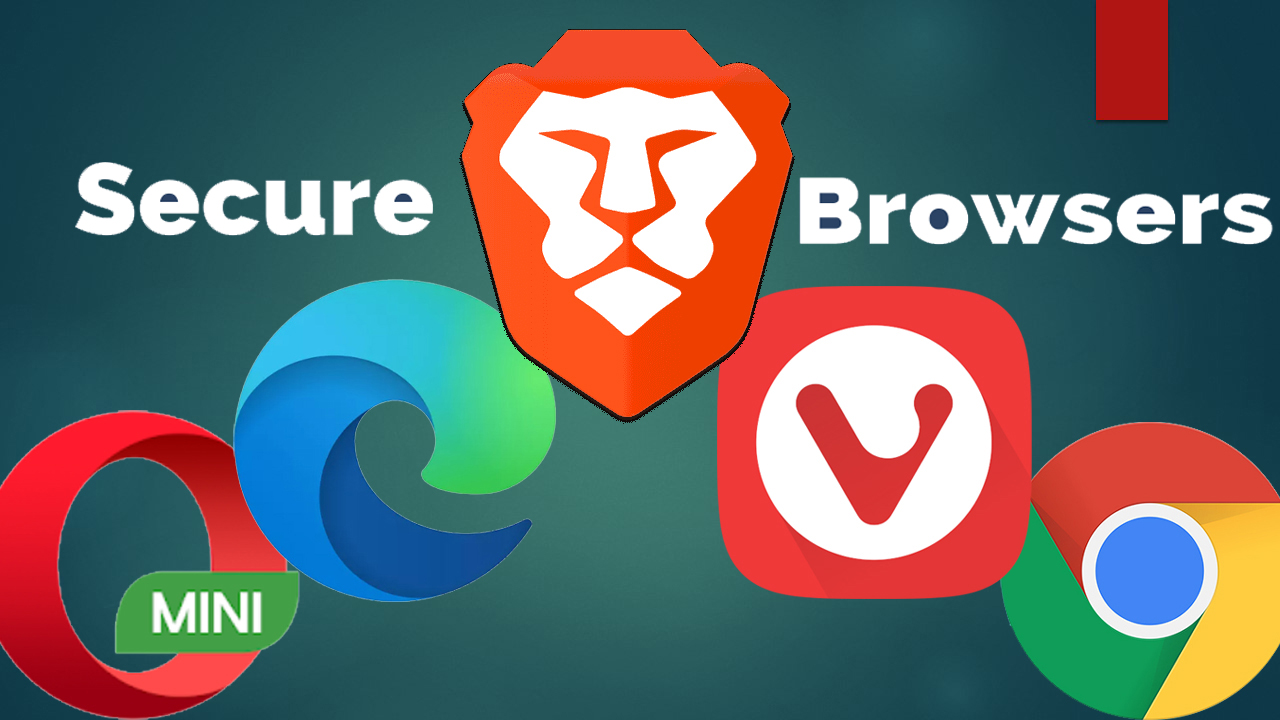The best web browser sets the stage for a seamless online experience, acting as your gateway to the digital world. It’s more than just a tool for browsing; it’s your digital companion, influencing how you interact with websites, manage information, and even protect your privacy. But with so many options available, how do you choose the best web browser for your needs?
Table of Contents
This comprehensive guide explores the key features, performance considerations, and customization options that differentiate the top web browsers. From the well-established giants like Chrome and Firefox to the newer contenders like Edge and Brave, we delve into their strengths and weaknesses, helping you make an informed decision that aligns with your specific requirements.
Key Features and Considerations: Best Web Browser

Choosing the right web browser is crucial for a smooth and efficient online experience. The best web browser for you depends on your individual needs and preferences. Several factors should be considered, including features, performance, privacy, and security.
Popular Web Browser Features
The features offered by web browsers are constantly evolving, but some core functionalities remain essential.
- Performance: A fast and responsive browser is essential for a seamless browsing experience. Consider factors like page loading speed, responsiveness to user input, and resource consumption.
- Security: Security is paramount in today’s digital world. Choose a browser that offers robust security features like phishing protection, malware detection, and data encryption.
- Privacy: Protecting your online privacy is crucial. Look for browsers with strong privacy settings, including options to block tracking cookies and limit data collection.
- Customization: The ability to personalize your browsing experience is essential for many users. Features like customizable themes, extensions, and add-ons allow you to tailor the browser to your specific needs.
- Sync and Cloud Integration: Synchronizing your browsing data across multiple devices and integrating with cloud services can enhance convenience and accessibility.
- Cross-Platform Compatibility: Choose a browser that works seamlessly across different operating systems (Windows, macOS, Linux, Android, iOS) to ensure a consistent browsing experience.
Comparing Popular Web Browsers
| Feature | Chrome | Firefox | Safari | Edge |
|---|---|---|---|---|
| Performance | Fast and responsive | Good performance, but can be resource-intensive | Optimized for macOS, but can be slow on other platforms | Improved performance compared to earlier versions |
| Security | Strong security features, including sandboxing and automatic updates | Focus on privacy and security, with features like tracking protection | Built-in security features, but may not be as robust as other browsers | Strong security features, including built-in anti-tracking |
| Privacy | Offers some privacy settings, but has been criticized for data collection | Strong emphasis on privacy, with features like tracking protection and data encryption | Good privacy settings, but may not be as comprehensive as other browsers | Focuses on privacy, with features like tracking prevention and data deletion |
| Customization | Extensive customization options through extensions and themes | Highly customizable with add-ons and themes | Limited customization options compared to other browsers | Offers some customization options, including themes and extensions |
| Sync and Cloud Integration | Seamless sync across devices with Google accounts | Offers sync features, but may not be as comprehensive as other browsers | Integrated with iCloud for seamless sync across Apple devices | Sync features integrated with Microsoft accounts |
| Cross-Platform Compatibility | Available on all major platforms | Available on all major platforms | Primarily for macOS and iOS devices | Available on Windows, macOS, and Android |
Privacy and Security Considerations
Protecting your online privacy and security is crucial. Consider these factors when choosing a browser:
- Tracking Protection: Look for browsers with built-in tracking protection features that block third-party cookies and other tracking mechanisms.
- Data Encryption: Ensure the browser uses strong encryption protocols (like HTTPS) to protect your data during transmission.
- Password Management: Choose a browser with a secure password manager that stores your passwords securely and offers autofill functionality.
- Phishing Protection: Look for features that detect and warn you about phishing websites that attempt to steal your personal information.
- Malware Detection: Some browsers offer built-in malware detection and prevention features to protect your device from harmful software.
Extensions and Add-ons
Browser extensions and add-ons are small programs that enhance your browsing experience by adding new features or customizing the functionality of your web browser. They can be incredibly useful for boosting productivity, improving security, and personalizing your browsing experience.
Types of Browser Extensions and Add-ons
Browser extensions and add-ons offer a wide range of functionalities, catering to various needs. Here are some common types:
- Productivity Tools: Extensions like Grammarly can help you write better by checking grammar and spelling, while Evernote Web Clipper allows you to save web pages and articles for later reference. Other popular productivity extensions include:
- Momentum: Replaces your new tab page with a beautiful daily photo and a motivational quote.
- TMetric: Tracks time spent on websites and tasks, aiding in time management.
- Toby: Organizes and saves groups of tabs for easy access later.
- Security and Privacy: Extensions like uBlock Origin block ads and trackers, while Privacy Badger automatically blocks third-party cookies that track your online activity. Other popular security and privacy extensions include:
- HTTPS Everywhere: Enforces HTTPS connections whenever possible, enhancing security.
- NoScript: Blocks JavaScript execution, reducing the risk of malicious scripts.
- Ghostery: Detects and blocks trackers and ads, protecting privacy.
- Social Media and Communication: Extensions like Buffer can schedule social media posts, while Slack can integrate with your browser for easy communication with colleagues. Other popular social media and communication extensions include:
- Facebook Container: Isolates Facebook activity to prevent tracking across other websites.
- TweetDeck: Provides a more powerful interface for managing Twitter accounts.
- Messenger for Chrome: Integrates Facebook Messenger into your browser for seamless communication.
- Shopping and Deals: Extensions like Honey automatically searches for coupons and discounts at checkout, while CamelCamelCamel tracks the price history of products on Amazon. Other popular shopping and deals extensions include:
- The Great Suspender: Suspends inactive tabs to save memory and improve performance.
- Save to Pocket: Saves articles and web pages for offline reading.
- Momentum: Replaces your new tab page with a beautiful daily photo and a motivational quote.
Benefits of Using Extensions
Browser extensions offer several advantages:
- Enhanced Functionality: Extensions add new features and capabilities to your browser, expanding its functionality beyond its default offerings.
- Increased Productivity: Productivity tools like Grammarly, Evernote Web Clipper, and Momentum streamline workflows and save time.
- Improved Security and Privacy: Extensions like uBlock Origin, Privacy Badger, and HTTPS Everywhere enhance security and protect your privacy while browsing.
- Personalization: Extensions allow you to customize your browsing experience to suit your preferences, from changing the appearance to adding new features.
Potential Risks of Using Extensions
While extensions offer many benefits, it’s essential to be aware of potential risks:
- Security Concerns: Malicious extensions can steal your data, track your browsing activity, or even hijack your browser. It’s crucial to install extensions only from trusted sources and review their permissions carefully.
- Privacy Issues: Some extensions may collect and share your browsing data with third parties, compromising your privacy. Always read the extension’s privacy policy before installing it.
- Performance Impact: Too many extensions can slow down your browser, especially if they run in the background. It’s essential to manage your extensions and disable those you don’t use frequently.
Guidelines for Choosing and Managing Extensions
Here are some guidelines for choosing and managing browser extensions:
- Install Extensions from Trusted Sources: Always install extensions from official web stores like the Chrome Web Store or Mozilla Add-ons, as these stores have vetting processes in place.
- Read Reviews and Ratings: Before installing an extension, read reviews and ratings from other users to gauge its reliability and performance.
- Review Permissions Carefully: Pay close attention to the permissions an extension requests. If it asks for access to sensitive data, consider whether it’s necessary for its functionality.
- Limit the Number of Extensions: Too many extensions can slow down your browser. Keep only the essential extensions installed and disable those you don’t use frequently.
- Keep Extensions Updated: Regularly update your extensions to ensure they’re secure and compatible with the latest browser version.
- Remove Unused Extensions: Regularly review your installed extensions and remove any you no longer use.
Accessibility and Inclusivity
A great web browser should be accessible to everyone, regardless of their abilities. This means offering features that help users with disabilities navigate the web easily and efficiently.
Accessibility Features Offered by Web Browsers
Accessibility features are crucial for making the web accessible to users with disabilities. Here are some examples of how web browsers can be used to enhance accessibility:
- Screen readers: Screen readers are software programs that read aloud the text displayed on a computer screen. They are essential for people who are blind or have low vision. Most web browsers come with built-in screen reader support or have extensions that integrate with popular screen readers like NVDA or JAWS.
- Text-to-speech: This feature allows users to hear the text on a web page read aloud. It is helpful for people with dyslexia or learning disabilities who may find it difficult to read text on a screen.
- High contrast mode: This mode increases the contrast between text and background colors, making it easier for people with visual impairments to read text on a screen.
- Zoom: This feature allows users to enlarge the text and images on a web page, making it easier to see for people with low vision.
- Keyboard navigation: This feature allows users to navigate the web using only their keyboard, which is essential for people who have difficulty using a mouse.
- Color filters: This feature allows users to adjust the colors on a web page to reduce eye strain or make it easier to see for people with color blindness.
Examples of How Web Browsers Enhance Accessibility
Web browsers are constantly evolving to become more accessible. Here are some examples of how web browsers can be used to enhance accessibility for users with disabilities:
- Built-in accessibility features: Many modern web browsers come with built-in accessibility features like screen reader support, text-to-speech, high contrast mode, zoom, and keyboard navigation. These features are often accessible through the browser’s settings or accessibility menu.
- Extensions and add-ons: Web browsers also offer a wide range of extensions and add-ons that can further enhance accessibility. These extensions can provide features like screen reader customization, color filters, and more.
- Accessibility guidelines: Web browsers are increasingly adhering to accessibility guidelines like the Web Content Accessibility Guidelines (WCAG) to ensure their products are accessible to users with disabilities.
Importance of Inclusivity in Web Browser Design
Inclusivity in web browser design is crucial for creating a web that is accessible to everyone. By designing web browsers with accessibility in mind, developers can ensure that everyone has an equal opportunity to access and use the web.
Conclusion (Avoid)

While the best web browser for you will ultimately depend on your individual needs and preferences, this guide has provided a comprehensive overview of the key factors to consider when making your choice. From performance and security to features and accessibility, there is a browser out there that is perfectly suited to your unique requirements.
Browser Performance and Security, Best web browser
Browser performance and security are crucial aspects to consider when choosing a web browser. Modern web browsers employ various technologies to enhance performance and security, including:
- JavaScript engines: These engines interpret and execute JavaScript code, which is essential for modern web applications. Browsers like Chrome and Safari utilize highly optimized JavaScript engines for smooth performance.
- Multi-threading: This allows browsers to handle multiple tasks simultaneously, improving responsiveness and reducing loading times. For example, Chrome utilizes multiple threads to handle background tasks, ensuring that the browser remains responsive even when downloading large files or running demanding applications.
- Sandboxing: This security feature isolates web pages from the operating system, preventing malicious code from accessing sensitive information. For instance, Firefox employs a robust sandboxing mechanism to protect user data from potential threats.
Last Point

Navigating the world of web browsers can be a daunting task, but understanding the core functionalities, features, and considerations presented in this guide empowers you to make an informed choice. Whether you prioritize speed, security, customization, or accessibility, there’s a web browser out there that’s perfect for you. Ultimately, the best web browser is the one that enhances your online experience, enabling you to navigate the digital landscape with ease and confidence.
Choosing the best web browser can be tricky, especially when considering factors like performance, security, and customization. For accessing virtual desktops and applications, however, the VMware Horizon Client offers a dedicated solution that optimizes the user experience. While a powerful browser is still essential for everyday tasks, a specialized tool like Horizon Client ensures a smooth and efficient remote computing environment.
